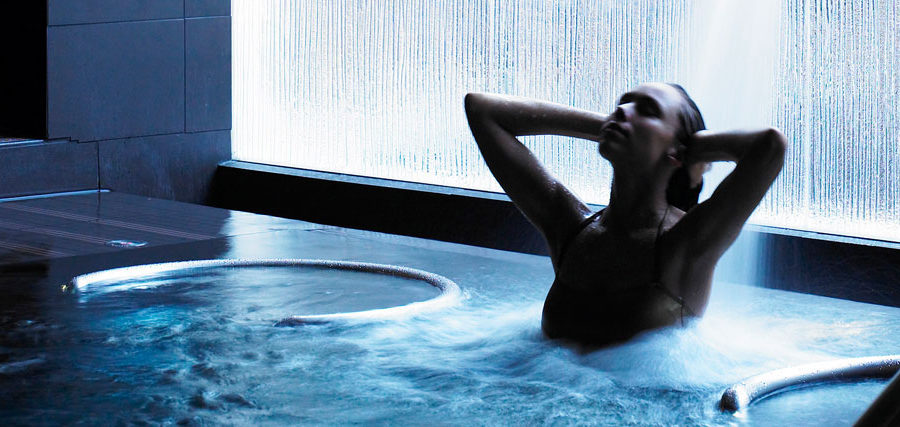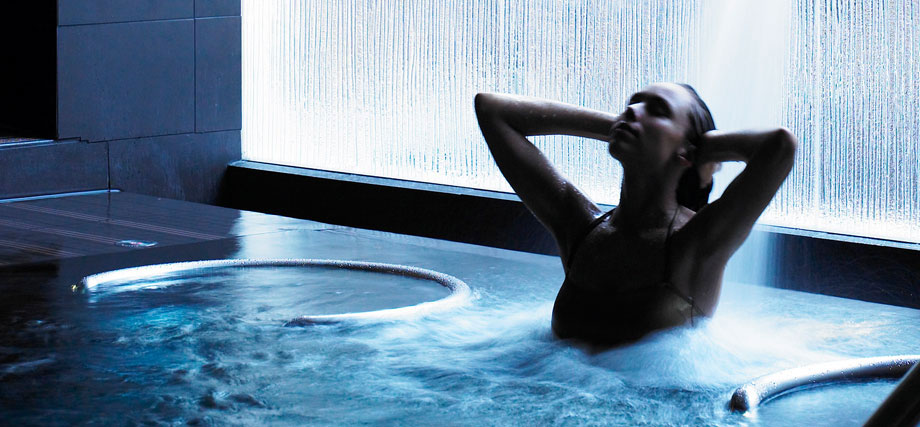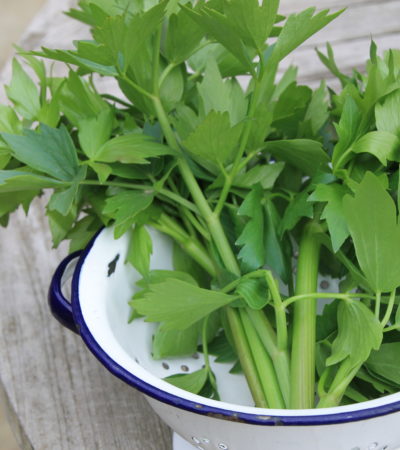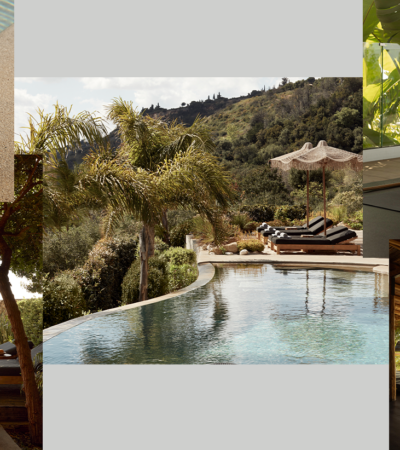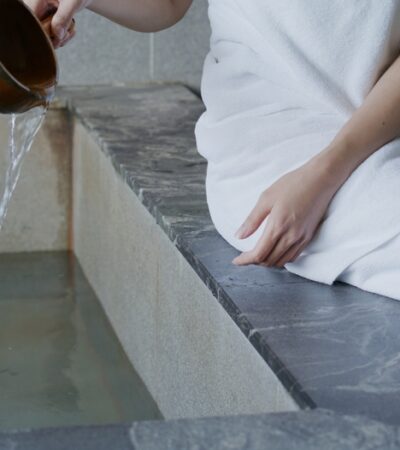I am going to tell you a little secret, I say ‘little’, it’s huge: spas are not what they seem. Over the years, spas have developed a threefold reputation as being expensive, decadent, and the predominant domain of women. In 2013 however, none of these are true unless you want them to be.
Thanks to the proliferation of booking agents and voucher models, not to mention the forced re-evaluation of priorities brought about by recession, spas have responded to the financial requirements of their customers to make health and beauty more accessible. There are also an increasing number of options where these facilities are available, from leisure venues offering spa areas, to specialist venues. As for spas being the domain of women, treatments catering specifically for men are a vital part of the modern day spa (for which all of us, girlfriends in particular, are supremely thankful).
This point about decadence is an interesting one however. Key to the traditional perception of spas is the idea that they are simply treats – a luxury for the odd occasion. While I am not going to be so bold as to suggest they are a weekly tonic for life’s trials and tribulations, they can offer a lot more than a manicure and a glass of champagne in the hot tub (although naturally that is available if it’s what the doctor orders, so to speak).
When it comes to health, spas can provide a mine of resources and information. As a society that knows more about health than ever before, it is often the thing that comes bottom of a list of priorities, behind taking the kids to school, work, catching up with your friends, and then dragging yourself out of bed earlier than desired the next day to do it all again. But to ignore health is to shoot ourselves in the proverbial foot. Taking a little time out to assess how you are and make yourself feel better every now and again can do a world of restorative good; reducing stress, paying attention to any little niggles you have been ignoring, and let’s not forget, having a little fun as well – never underestimate the power of a genuine smile!
The beauty of the modern day spa is that many of them are now home to a wealth of health and fitness knowledge and advice, with specialists housing themselves within the inner sanctum of calm to help guests whether they have specific health issues – sleep problems, skin problems, IBS, menopause, Seasonal Affected Disorder (SAD), or advice when you are simply feeling ‘not right’.
Grayshott Spa and Hotel in Surrey is a prime example of the services that specialised spa venues are able to offer, with staff who have a wealth of expertise advising on nutrition and lifestyle surrounding the menopause, and also as one of the hubs from which sleep specialist, Tej Samani, operates his clinics for anyone with insomnia or sleep concerns. Equally, Lifehouse Spa and Hotel, where the spa packages are tailored by in-house naturopath, Sue Davis, combine a relaxed spa atmosphere with the option to discuss specific issues and to address them in an unobtrusive manner if guests would like.
Alternatively, Gleneagles, who introduced their ESPA Life program last year, choreographed by naturopath, Louise Westra, have introduced the initiative to make the facilities and natural surroundings that they have readily available, work a little harder. Westra provides treatment based on Traditional Chinese Medicine and Ayurvedic principles, two of the oldest practices that remain a medicinal standard in China, alongside contemporary knowledge. Where her expertise is of particular use isn’t just in aiding lifestyle changes and helping with health concerns directly, but also in supporting the body alongside conventional treatments: “I look into why a condition has occurred, and also how to help the body support itself while undergoing treatment – particularly in the case of chronic problems like Rheumatoid Arthritis, where the effects of the medication can be quite unpleasant.”
Of course, spa isn’t necessarily an alternative treatment for many health concerns, but rather something that can complement more conventional advice, or even alert you to a problem and suggest a visit to your doctor if necessary. On a number of occasions therapists have reported that they have found a lump while delivering a treatment to a guest, which they have recommended they have seen to, subsequently detecting cancer in its early stages. Equally, the likes of Spabreaks.com have created spa breaks specifically for anyone who has or has recently had cancer in order to provide a little respite and gentle care to help guests start to feel like themselves again.
Contrary to our schedules, health isn’t something we can relegate to one day a week, or half an hour a day, it is something we live with all the time. It’s now. However, looking after it doesn’t have to be a 10 mile slog in the rain, and it doesn’t have to be an endurance test. It can be a swim, a massage, lunch with friends, and a natter with a therapist. Ultimately, this is about time – something supremely valuable that most of us don’t quite have enough of – dedicated to paying a little attention to you and your body, checking in, making sure it’s all ok. No one knows your body better than you do, but sometimes we just need a little space and guidance to hear what it’s trying to tell us, and that is what you find in a spa.
image: The ESPA Spa at Gleneagles
words by Bonnie Friend, Editor at www.spabreaks.com

